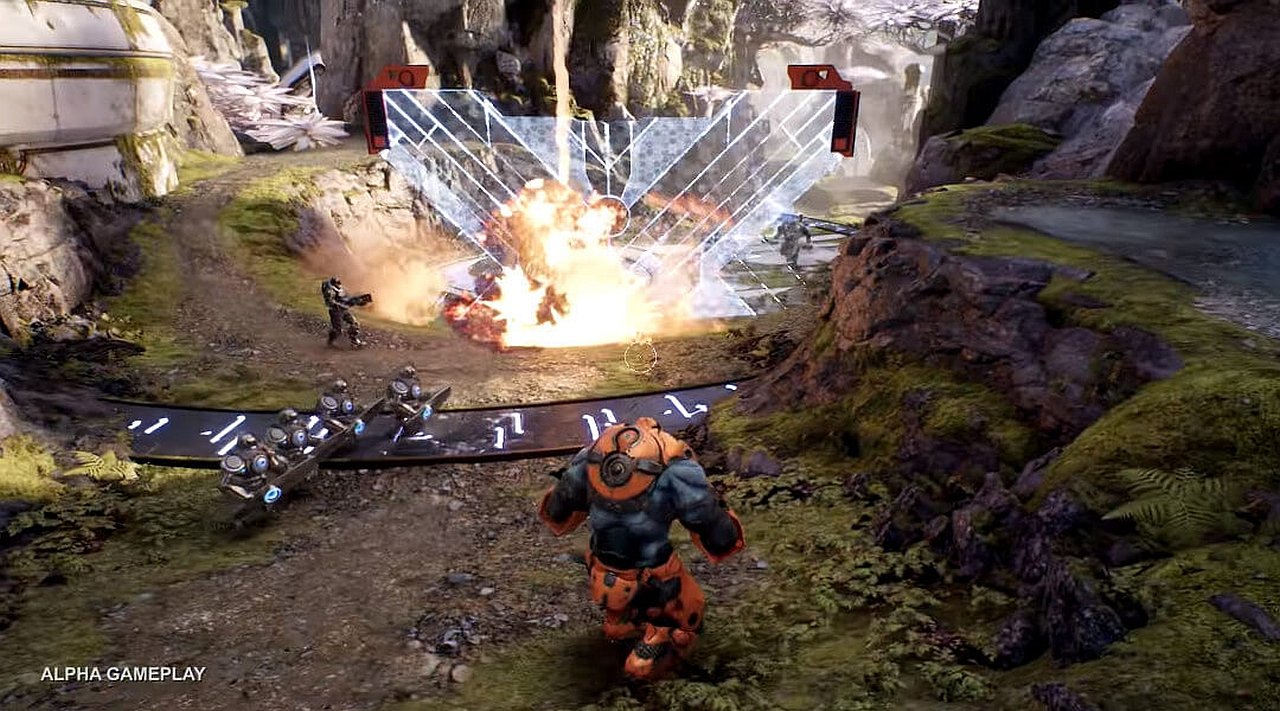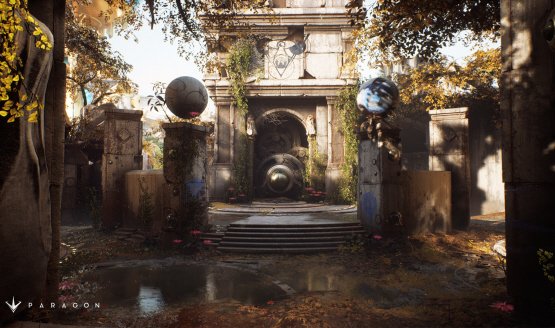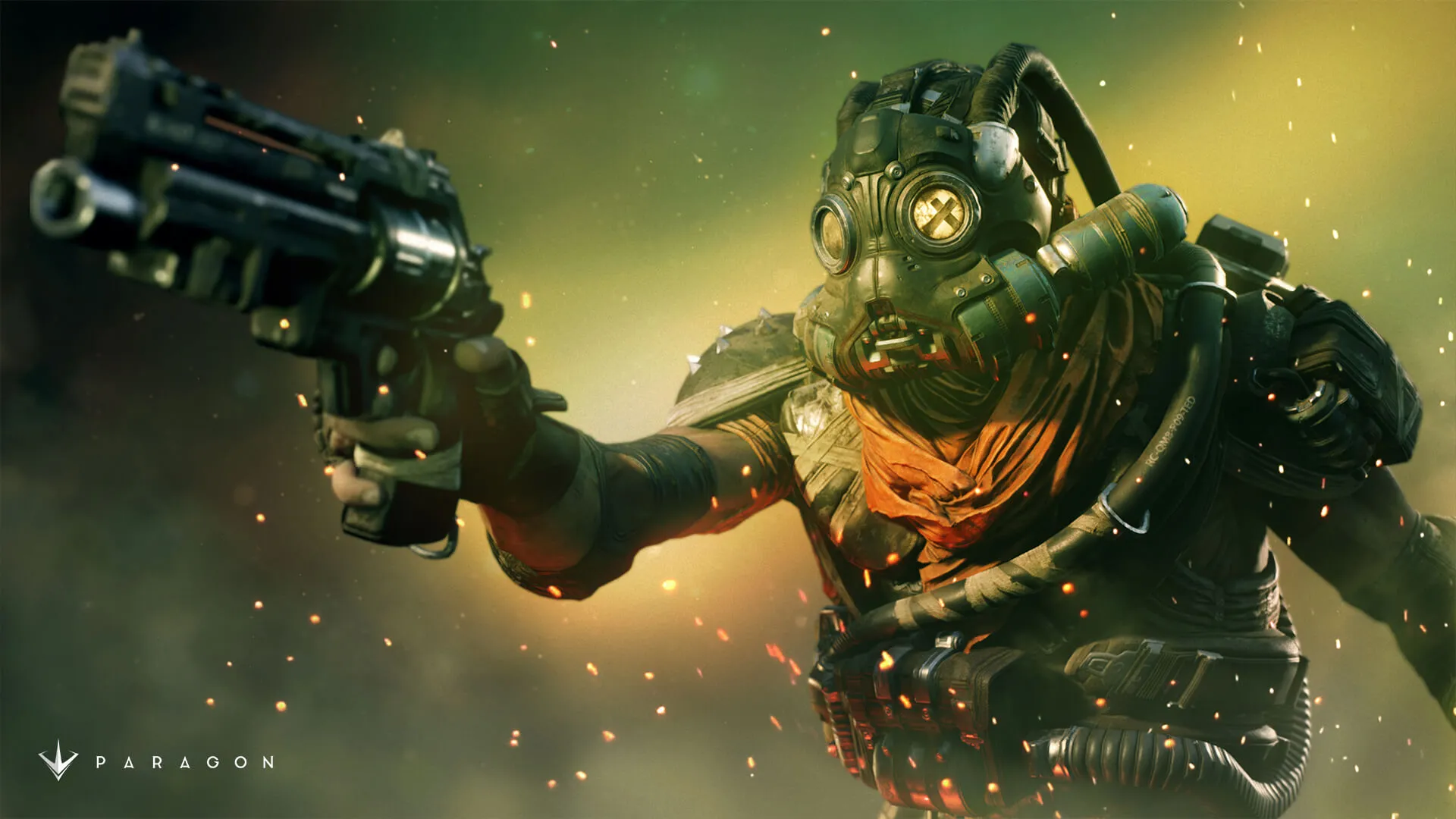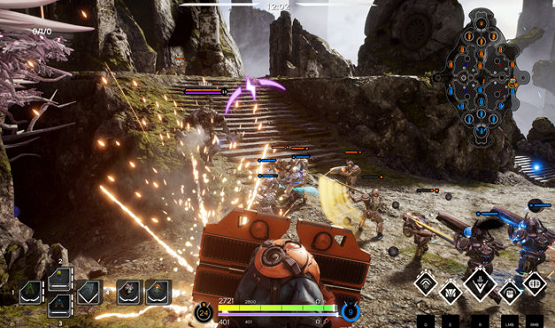Around four months before Cliff Bleszinski left Epic Games in 2012, 40 percent of the company was acquired by Chinese holdings conglomerate, Tencent. The Asian money machine had a reputation in the games industry of pioneering financial support for the blossoming “games as a service” market. Epic wanted an inroad to that business, but without the experience necessary to figure it out themselves, they were motivated to bring that knowledge in from the outside. With Riot Games’ League of Legends as the jewel of Tencent’s portfolio, it was becoming clear that they knew a thing or two about success in that field.
Three years later, at the Sony-centric PlayStation Experience, Paragon was revealed to a crowd of panel goers with general indifference. It was undoubtedly a move orchestrated, in part, by Tencent’s new controlling interest in Epic. MOBAs, which were a hot commodity in 2012, were a dime a dozen by 2015. The bubble was bursting. Of the 12 MOBAs released between the time Tencent bought its chunk of Epic and the announcement of this new entry into the genre, 5 of them had failed, with many of them not even lasting a full year.
But Paragon was different, as Executive Producer John Wasilczyk would tell anyone who asked. His pitch for it was compelling: While other MOBAs were a highly passive, strategical experience, Epic’s was an active and frenetic third-person action experience in the MOBA aesthetic. Paragon was League of Legends by way of Gears of War.

A Changing Market
Anyone who got their hands on it during its Early Access in March of 2016 would agree that Epic had created a unique experience. Fast and free movement and heavy emphasis on skill based targeting took the best parts of Unreal and SMITE, and slapped them together in this sci-fi/fantasy hybrid world. When it went fully free-to-play that August, Paragon enjoyed a steady growing wave of players on PC and PS4, looking to experiment in the genre that had mostly turned them off for the first.
But by 2016, the MOBA craze had ended in North America. The established leaders in the genre were stoic to market forces, and competing against them seemed like a fool’s errand. Thanks to Overwatch, the hero shooter was the new games as a service craze. 2017 would find that paradigm upended again with the completely ludicrous, runaway success of Playerunknown’s Battlegrounds. PUBG was so popular that Epic converted their other current project, the beleaguered survival shooter, Fortnite, into its own PUBG clone. This move allowed it to find its own unbridled success.
In the wake of these seemingly immovable market forces and existential factors, it would be safe money to bet that Paragon was dead on arrival. That its impending closure this April was the only outcome for a MOBA not named Dota 2 or League of Legends. While that may be true, the closure is further colored by the dramatic collapse of the relationship between the game’s developers and the playing community.

Legacy and Beyond
Paragon has always suffered from a bit of an identity crisis. It was super convoluted, but strategically shallow in the very beginning (in what’s now called its Legacy era). The map was huge and took forever to navigate. Neutral monsters and environmental landmarks looked bland and non-descript. The finer mechanics were obtuse. However, it was gorgeous to look at, and when you could action find enemies to engage, the battles were more tense and engaging than you’d find in most of the competition.
As playable characters counts grew, player feedback rolled in, and the fast paced appeal of those aforementioned hero shooters became difficult to ignore, Paragon would adjust accordingly. Its Monolith update intended to make the game more straight-forward, quicker to play, and to feel more dynamic in the moment-to-moment engagements. The gamble worked, and is largely responsible for the re-interest in the game and reignition of the fanbase’s fervor that would drive the game up to 1 million registered players.
Monolith was widely accepted as the new normal, doubling down on the shooter speed and feel of skirmishes, while also falling more in line with the tropes of other MOBAs. This also meant that Paragon was shifting away from its slower, more defensive style of play, and into a more aggressive meta. Tailoring your characters to do a lot of damage quickly became a strategy even for characters not known for their lethality. The development team assured players that this was just a bad interaction with the new game mode and the old item/progression system that was going to be changed.
And in August 2017, that new system came, and made it worse.

Dark Final Days
There was a period of unrest that should’ve been an expected fight as any new system always comes growing pains. But five months later, those pains are just open wounds. Decisions made to free up the way players outfitted their characters and bring creativity and tactical moxy to the game did the exact opposite. Instead, the game quickly demanded a more narrow approach to even be competitive.
Worse still, was the sort of wait and see response from the development team. While Epic tried their best to address community issues and keep people up to date with future changes in forum posts and their Community Corner video series, the damage had been done. Frustration between the slowly shrinking player base and Epic telling them that everything would be fine when things clearly weren’t, made it very easy for people to look for other games to play.
But even in the hardest of times, there were steadfast players who were more than willing to stick it out and see it through. This was a game still in beta, but getting to the finish line was always the intention, even if the goal posts kept moving. Slyphin, maybe the Paragon community’s brightest and most trusted voice, was in literal tears in a video he posted the day the closure was announced. There were true believers out here that were let down, and those are the people who deserved more.
Paragon may have always been destined for closure. Who could have planned that another game with ArmA mod roots would take off and change video games significantly? But the game that will come to an end in April is a shambling corpse of the game people were red hot for just a half a year ago. Paragon didn’t have to die in darkness.








